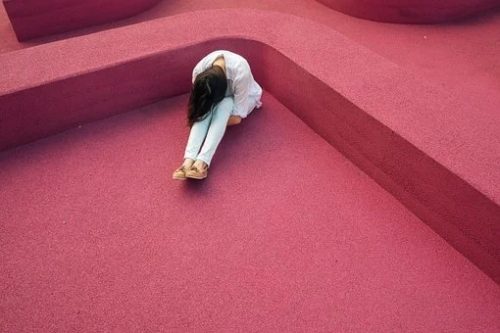I constantly thought that I am depressed, especially when I feel a little weird emotionally. I immediately assume that my sadness and loneliness are somehow related to a mental health condition. I know I should not assume the worst, but I really cannot help myself. Sadness and loneliness are emotions that rely on negative events in my life. So I know I should not generalize those feelings and associate them with a mental illness. But sadly, my understanding of mild depression is a little enclosed in a box.
Fortunately, after seeking professional help, I now understand that my condition is purely a mild one. It is not something serious, and that is a relief. After some lengthy deliberation, I’ve settled on a plan of action to tackle my current challenge. Now it’s time to put the ideas into motion and see what happens! Taking action gives me a renewed sense of control and hope for the future.
Self-Care Strategies for Managing Mild Depression
Self-care strategies can be effective in managing major depression and improving overall mental health conditions. Struggling with depression? Check out these simple, practical strategies that can help improve your mood and reduce symptoms. With easy-to-follow ideas for daily routines, you’ll be feeling happier before long! Some examples of self-care techniques that you can try for yourself to manage depression include:
- Be Active Regularly: Get your body moving, and your mind will follow! Studies have shown that fitting in just 20-30 minutes of exercise daily can lead to improved mental well-being, reducing symptoms associated with depression. So grab a friend or go solo – no matter how you do it, physical activity is an important key for keeping both the body and soul healthy!
- Nourish your body with healthy meals: Nourishing your body with healthy meals will do wonders for you – better physical and mental health, plus boosted energy. Your diet should be balanced to get the most out of life! Eating a variety of colorful, nutrient-dense foods like vibrant fruits & vegetables, whole grains, and lean protein sources can leave you feeling healthier than ever – both inside and out.
- Practice good sleep hygiene: Get the restful night’s sleep you need to keep your mind and body healthy! Aim for 7-8 hours of shut-eye each evening, making sure that it comes at the same time each day. Doing so will help improve your mood while also reducing any symptoms of depression – it couldn’t hurt to give it a go!
- Be in the Present: If you’re feeling overwhelmed by stress, it’s time to take action! Give your physical and mental health a break with simple mindfulness practices such as meditation, deep breathing, or yoga. Even just a few moments of focusing on yourself each day can help significantly reduce symptoms of depression – both now and in the long term. Not only will you find relaxation in each session that helps clear away stressors – it’s an opportunity for personal growth too.
- Spend more time outside in nature: When you step away from your daily hustle, take a break, and head outdoors – it can be the perfect tonic for body and soul. Experience the soothing effects of nature while clearing your mind, calming frazzled nerves, and embracing some much-deserved peace. Even a short walk outside can be beneficial for improving mood and reducing symptoms of depression.
- Keep doing your hobbies: When you’re feeling down, participating in activities that bring joy and understanding is a great way to lift your spirits. Whether it’s playing the guitar or baking with friends, combining something fun with personal growth can be an excellent boost for mental well-being.
Taking a holistic approach to mental well-being is key – and though various self-care practices may help with depression, it’s important to recognize that individual needs differ. Crafting your own personal plan for achieving complete wellness will pay off in the long run! Everyone’s journey is unique, and some might need additional health professional support. It’s important to seek professional help if symptoms persist or interfere with daily life. Mental health professionals possess the expertise and understanding needed to create a plan that truly fits your lifestyle and takes into account your unique goals. They’ll work with you as an individual, crafting strategies designed just for you.
Know When To Seek Professional Help
Feeling a little down? Self-care strategies can definitely help with depression, but if these persistent negative thoughts and feelings start to get in the way of your day-to-day life then it might be time for you to reach out for extra support. Signs that professional treatment could be necessary include difficulties performing at work or school, withdrawing from friends & family members, and feeling overwhelmed by daily tasks – so don’t wait too long before seeking help.
Symptoms are getting worse: If symptoms of depression are worsening over time, despite efforts to manage them with self-care strategies, it may be a sign that professional help is needed.
Symptoms persist for more than two weeks: Has it been longer than two weeks since you stopped feeling your usual self? If so, don’t let things get worse. Reach out today and get the help that you need! Don’t wait too long- seeking assistance could mean the difference between living in color or enduring life’s grey. Mild depression can sometimes develop into more severe forms of depression, so it’s important to address symptoms early on.
Difficulty performing daily activities: Feeling down can make it hard to handle the everyday responsibilities of life. If those struggles have become too much, don’t be afraid to reach out and get help from a professional – you deserve support as you work through your journey.
Thinking of harming yourself or suicide: Considering self-harm or suicide is a serious warning sign, don’t wait to reach out and get invaluable professional help right away. Taking this step could save your life as these are serious symptoms that require urgent attention.
Our mental health is a cornerstone of our overall well-being – but it can be tough to manage alone. Finding the right support and resources for maintaining your emotional health can make all the difference. If you’re experiencing any signs associated with persistent depressive disorder, don’t hesitate to reach out for help from health professionals like therapists and psychiatrists – they’ll provide tailored support that could make all the difference in improving your mental state. By combining therapy and medication (if needed), you can achieve true freedom when living with depression!
Not feeling your best? Here are some of the successful strategies I’ve used to cope with mild depression – why not give them a try and see if they help you too:

How Can You Determine If You Are Depressed?
Feeling down from time to time is an entirely ordinary part of people’s lives, but when those feelings get associated with despair and hopelessness that won’t let go, those can be a sign of a mental health issue, including anxiety, depression, bipolar disorder, PTSD, etc. Mild or also known as low-grade depression, can be described as temporarily feeling blue. The mental health symptoms can go on for days and are noticeable enough to get in the way of your usual activities. There is irritability or anger that typically comes out of control. Fortunately, mild depression can be reduced with proper medication, self-care, and talk therapy.
While some still need to rely on medication, I choose to avoid that as much as possible. Thus, I practice mindfulness meditation to keep my stressors in place. It helps a lot with my mild depression.
Do antidepressants help depression?
Yes. Antidepressants help a lot in reducing symptoms of depression. These medications are generally less likely to cause problems, even at higher therapeutic doses. They also cause fewer bothersome side effects compared to other types of antidepressants. SSRIs, like Prozac, Paxil, Zoloft, and Celexa, are a type of selective serotonin reuptake inhibitor that helps people manage their mental health. Whether it’s Pexeva or Lexapro being prescribed – these medications can be life-changing for those struggling with depression. But before taking any medications, it is best to understand proper diagnosis so that one can understand the types of drugs that need to be taken.
What is a light antidepressant?
If you’re in need of a little extra help, consider the “mild” side of antidepressants. Popular options include Prozac, Zoloft, Celexa, and more – all with different levels of effectiveness for your specific needs. These are experts recommended because they only show fewer to no bothersome side effects. These drugs are less likely to cause higher doses than other types of antidepressants on the market.
What medication is used for the specific mental condition?
Deciding which medication to treat a new diagnosis of depression can be challenging – there isn’t an across-the-board “right choice” between escitalopram (Lexapro) and sertraline (Zoloft), as scientific evidence is lacking. Every patient’s treatment will involve personal considerations! While SSRIs may be the most talked about medications for mental health, there are other options that can treat conditions too. If you’re looking for another approach, consider talking to your doctor about trying one of these four medications – Venlafaxine (Effexor), Paroxetine (Paxil), Duloxetine (Cymbalta) and Fluoxitrine(Prozac). Don’t be afraid to explore alternative paths that might help put yourself on the path toward feeling better.
What should I know before starting antidepressants?
There are things you should realize before starting to take any antidepressants. First, you have to understand that different varieties of medicines suit different people. Not all of the drugs work immediately because some may take a while to work. Not all medicines are created equal- some come with the temporary downside of side effects while others don’t! With this information, it is significantly essential to talk to your doctor to know which medicines interact well or not. If in case you are already taking something, do not stop all of a sudden. Allow yourself to have time to recover. And if there is a chance to try non-medicine options first for mild depression, then work on it.
What does it mean to be moderately depressed?
Moderate depression is noticeable, especially when there are low mood and irritability on most days. Often, there is a loss of interest or enjoyment in formerly enjoyable activities. But generally, such symptoms still vary in duration and intensity in people with moderate depression. Thus, it is vital to allow oneself to learn and access self-care tools and treatment to help manage the signs and symptoms of depression. An individual needs to recognize the changes in his thoughts, feelings, and behavior to improve.
But note that particular emotions such as sadness, anger, and fear, though they get associated with depression most of the time, can also represent “just” emotions at a significant moment. It is vital not to focus on those emotions and immediately connect them to a mental health sign. It pays a lot to understand your thoughts and feelings so you won’t get caught up with your depression.

What are the most reliable symptoms of the mental condition?
The most reliable signs and symptoms of clinical depression include feelings of sadness, emptiness, tearfulness, and hopelessness. There are also angry outbursts, frustration, or irritability, even over small things that do not matter. One can also experience a loss of pleasure or interest in most normal activities one usually enjoys. These include normal activities such as sex, hobbies, or sports.
However, for some people, these signs and symptoms do not apply. That is because some people are depressed that can still look happy, cheerful, and energetic. These individuals are good at controlling their depressive symptoms that you never knew existed. Some say that these types of depressed people need more understanding since they are entirely emotionally and mentally drained on the inside. Usually, these are those who are not afraid to take the risk and often think about self-harm and suicide.
What is the most serious form of depression?
The most serious and complicated form of depression is a major depressive disorder. Clinical depression affects millions of people every day. It’s a heavy burden, filled with hopelessness and sadness that can seem unrelenting at times. There is also a huge chance of having a major depressive disorder if there are five or more of the following symptoms on most consecutive days that usually last for two weeks or longer. But by seeking help from loved ones or professionals and developing new interests, there is hope for those who suffer from this condition.
In unfortunate instances, clinical depressive disorder makes a person change his feelings, thoughts, and behavior drastically. Often, you find the individual out of emotional control, lacking interest in things, always in self-doubt, and pessimist.
What are the general methods used to treat the mental condition?
With depression affecting so many lives, it’s important to remember that there are customizable treatments available. Finding the approach that works best for your individual symptoms and needs is essential in order to make progress towards a more positive outlook on life. Three of the more common methods used in addressing depression include cognitive-behavioral therapy. It is a form of therapy that aims to help a person deal with overwhelming problems positively. The process goes by breaking things down into smaller parts before making resolutions. The second one is interpersonal therapy. It aims to improve an individual’s communication and problem-solving skills, enhance social functioning, and lessen stress experienced in relationships. Lastly, there is psychodynamic therapy. It focuses on unconscious processes where there are understanding and self-awareness of the past’s influence on present behavior.
What is the known cause of depression?
Depression can be incredibly confusing and complex, with many different pathways leading to it. Being aware of how depression works is essential if we hope to provide the necessary support for those suffering. Let’s take a closer look at this condition so that we can be better equipped to offer compassion and understanding. Factors including severe life stressors, genetic vulnerability, drug and alcohol abuse, medications, and medical conditions can affect how the brain regulates moods. Also, vulnerability to grief negatively impacts self-esteem, bullying, academic problems, financial strain, and relationship problems contributing to long-term health issues that lead to depression.
Does depression count as a disability?
Americans with Disabilities Act (ADA) included depression as a disability because it significantly interferes with daily activities such as school, work, community, and environment. It is a mood disorder that is complicated and limits your ability and capability. Depression sometimes becomes entirely severe that it makes you no longer work and provide for yourself and your family.
Does a chemical imbalance cause depression?
Some study states that mental health problems such as depression are caused by imbalanced neurotransmitters between the brain’s nerve cells. Depression may arise from a lack of serotonin in the brain, leading to feelings of sadness and hopelessness. It’s an issue that affects millions around the world – but thankfully, there are numerous ways we can help relieve its symptoms.
How long does it take to treat the mental condition?
Depending on the factors affecting the mental health condition, episodes of major depression often take about two weeks or a month. If things get really tough, you might find yourself dealing with the condition for a few months or even an entire year. This particular period of depression requires medication and therapy.

Insight
Mild depression may not be that serious. Often, you can probably find a way to reduce your symptoms. But it is significantly important to realize that mild depression is still a mental health problem that you need to address because leaving it untreated can make your life around.
Final Thoughts And Takeaway
Depression can be in various forms, from mild depression to persistent depressive disorder, major major depressive disorder, and severe depression. The depressive symptoms can also vary from one person to another. To treat depression, numerous options are available. For depression symptoms of mild to moderate, talk therapy or lifestyle changes can be helpful. For severe types of depression, a medication like selective serotonin reuptake inhibitors may be imperative.
On the other hand, suicide prevention is pivotal, and many factors are present which can contribute to depression, including low self-esteem and stress. Natural kinds of treatment, such as herbal remedies, may help as well. However, it is important to be aware that peer-reviewed studies lack this aspect. Moreover, it’s crucial to address depression symptoms as they affect daily life, social life, and other aspects of health. Take note that other treatments vary depending on the type of depression, and it’s vital to seek support and medical treatment if symptoms persist, especially if suicidal thoughts or self-harm are experienced.